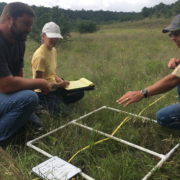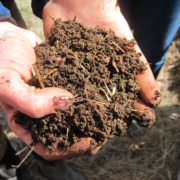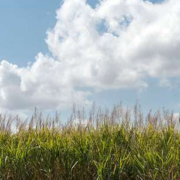Ember Cattle Company: A Soil for Water Case Study
Ember Cattle Company: A Soil for Water Case Study
Becky Szarzynski Rockbridge County, Virginia
Website: https://www.embercattle.com/
Becky Szarzynski is the owner and operator of Ember Cattle Company in Fairfield in Rockbridge County, Virginia. Becky as a grazier has honed her grazing management skills over the past 15 years by working with her father, attending conferences, being mentored by other farmers, and serving in a coordinator role of the farmer-to-farmer mentoring network with the Virginia Forage and Grassland Council. Becky raises South Poll cattle as a cow-calf operation, breeds replacement heifers, and sells seed stock on 160 acres of land.
Becky practices rotational grazing with a diverse forage base that includes native warm-season grasses, summer annuals, and cool-season perennials. She prefers the term adaptive grazing over rotational grazing because conditions are constantly changing, and you must be very observant of the interactions between soil health, plant diversity, livestock, pollinators, the weather, stocking density, and the overall system.
Becky shares her motivations, lessons learned, aspirations, and ongoing research and study of grazing and, of course, her fascination with dung beetles.
This project material is based upon work that is funded and supported by the National Institute of Food and Agriculture, U.S. Department of Agriculture, under award number 2020-38640-31521 through the Southern Sustainable Agriculture Research and Education (SSARE) program under subaward number LS21-345. USDA is an equal opportunity employer and service provider. Any opinions, findings, conclusions, or recommendations expressed in this publication are those of the author(s) and do not necessarily reflect the view of the U.S. Department of Agriculture.

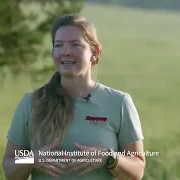
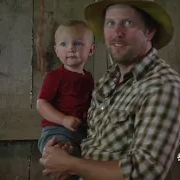
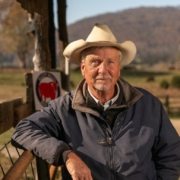
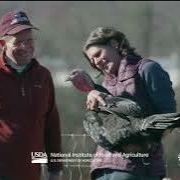
![ogalalla]2](https://attra.ncat.org/wp-content/uploads/2021/05/ogalalla2-180x180.jpg)
